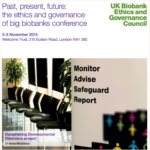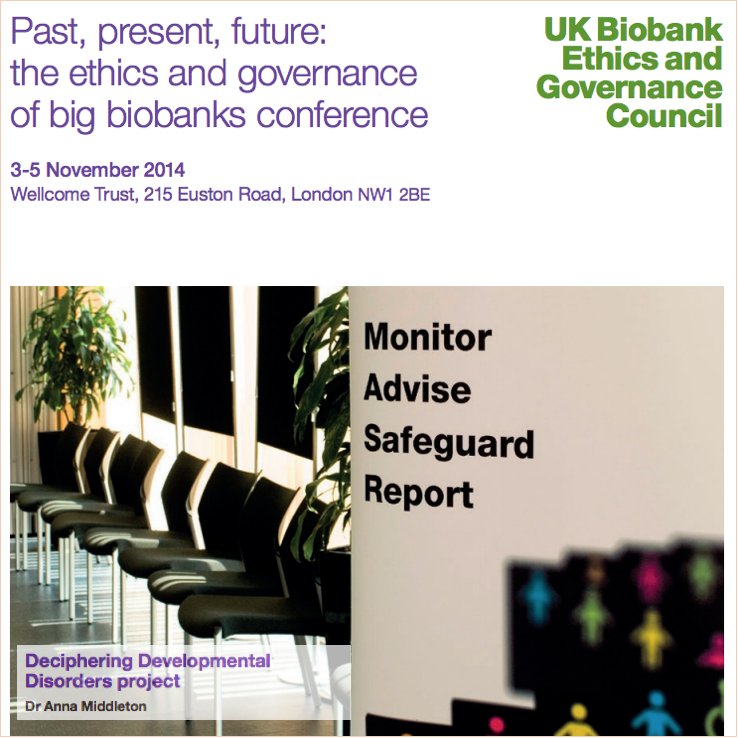Past, present, future: the ethics and governance of big biobanks


3rd November 2014
The Deciphering Developmental Disorders (DDD) project aims to advance clinical genetic practice for children with developmental disorders by the systematic application of the latest microarray and sequencing methods. From the offset the project planned to look at pertinent findings only (i.e. those relating to developmental disorder) and not to opportunistically screen for, or report, incidental findings (IF). In order to explore this position, and to address the ethical challenges raised by these methods, the project conducted an online survey to assess:
• Attitudes towards searching for IFs.
• What factors influence attitudes?
• What processes do people want?
The survey has resulted in the largest empirical dataset of attitudes to feedback in the world. Seventy five countries are represented and 6944 people took part (4961 members of the public (of which 276 are UK Biobank participants), 607 genomic researchers, 533 genetic health professionals and 843 other health professionals). Key messages from the survey are:
• People want data – when asked if IFs from genome studies should be made available the responses ranged from 72% yes from the genetic health professionals up to 91% yes from the public.
• Treatability is important – interest in feedback reduces as the data become less usable e.g. if a condition cannot be prevented.
• Attitudes are affected by professional background and genetic health professionals are the most conservative. • Most people said researchers should not have to actively search for IFs – there is no expectation of information delivery at all costs.
• Policy in research does not need to obligate researchers to share incidental findings.
Downloads:
Citation:

